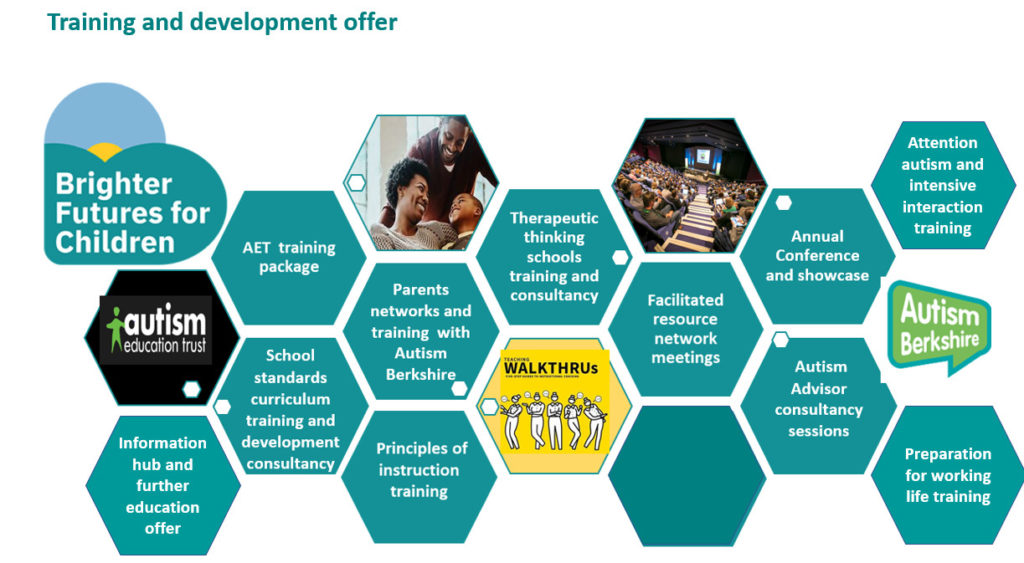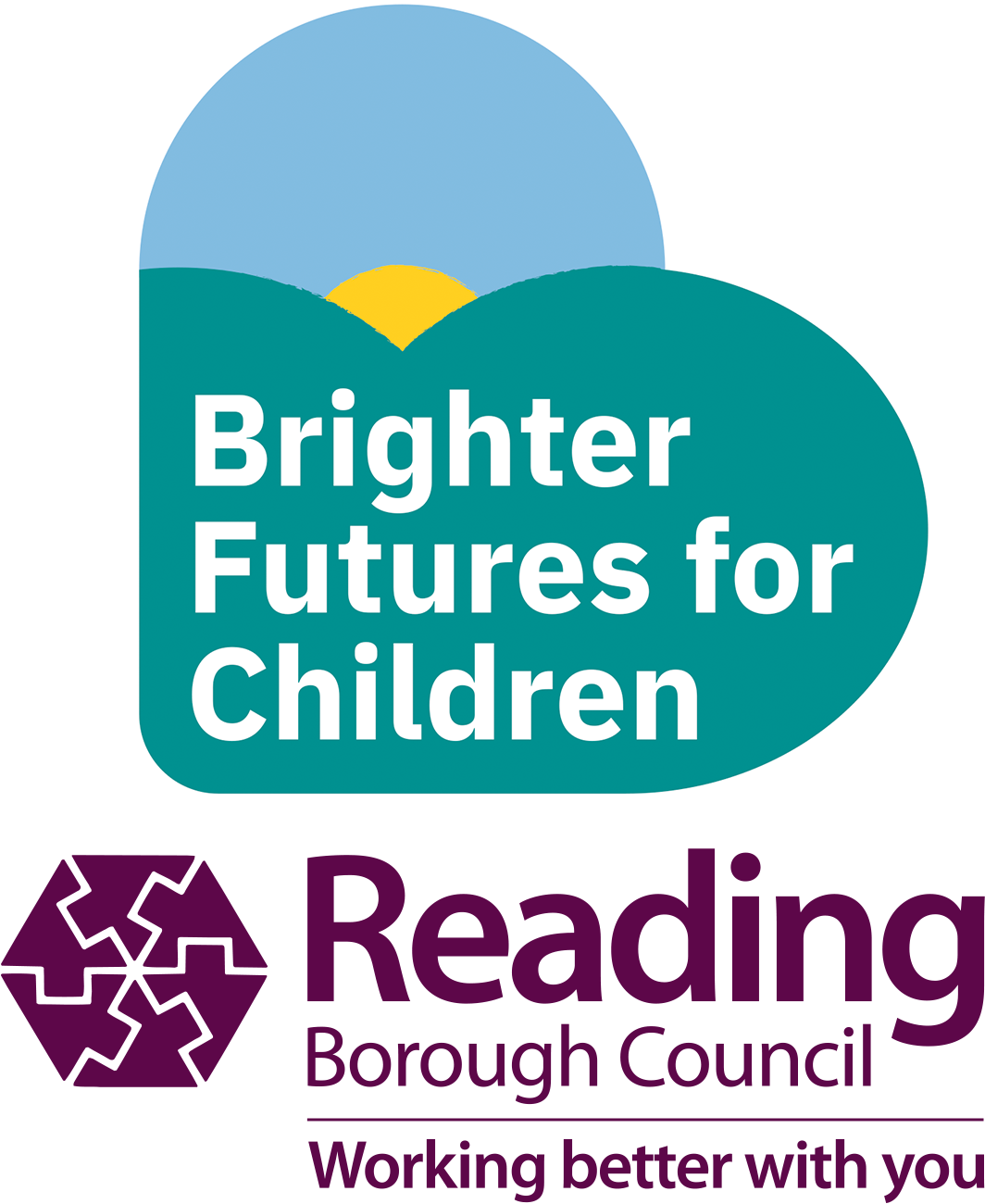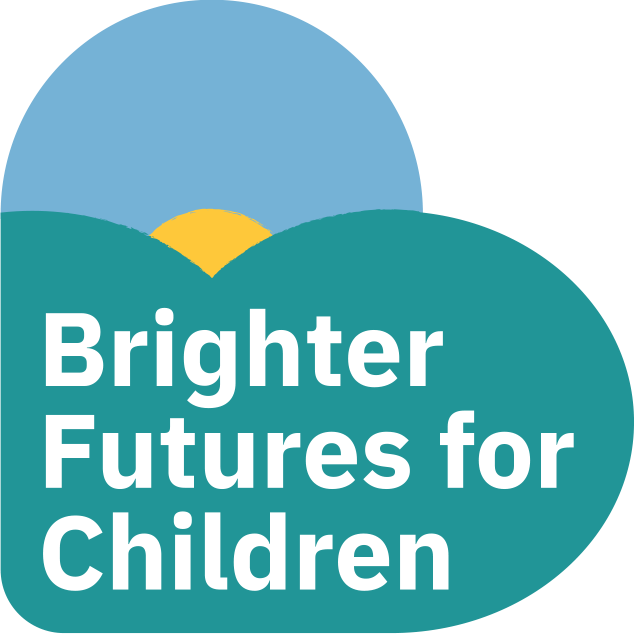- Home
- Professionals
- School Effectiveness services
- A growth approach to autism
A growth approach to autism in Reading

Reading is adopting a growth approach to autism because the number of autistic children and young people in the borough is growing and they and their families tell us their experiences in education, and with other public services, still need to be improved.
Approach aims
- Reading’s communities will grow a shared understanding of autism as a difference, not a deficit
- Staff across public services will be able to access high-quality training and support to grow their skills and knowledge about autism and how to make their provision more accessible for autistic people and their families
- Staff across public services will be able to access high-quality training that grows their confidence and their ability to provide positive experiences for autistic people
- Children and young people will be supported to grow through consistent, research-based approaches in schools and settings that have been co-produced with autistic people themselves
- The experiences children and young people have at school, in their homes and communities will grow; productive, confident, independent and authentic people who have been enabled to achieve equitable outcomes to their neuro-typical peers. They will have the tools and scaffolds they need and want to support them to self-advocate and self-regulate when they face any personal or institutional barriers or prejudice
- Parents and carers will be supported to grow as experts in their child’s needs. They will be able to access the information, support and advice needed, to help their child navigate through their childhood and dismantle any barriers they face
Brighter Futures for Children will:
- facilitate the growth of education system leadership by building on existing expertise and providing networking opportunities
- facilitate the growth of networking opportunities for people within the autistic and neurodiverse community
- increase the number of specialist education places
- provide support and training for new specialist resources to help them embed quality standards frameworks
- emphasise the importance of co-production, respect and communication.
- Autism is a difference, not a deficit
We advocate for the importance of neurodiversity in our society because diversity gives strength to an organisation, to our communities, and the world we live in.
- Trauma-informed and therapeutic approaches to inclusion, behaviour and relationship management
Therapeutic thinking is a trauma-responsive approach to behaviour and relationship management. This means we commit to carefully designing policy and practice, so the experiences children have, build; safety, trust, self-regulation, collaboration and pro-social feelings.
When anti-social behaviours are evident, trauma-informed practitioners ask, “what happened to you” not “what’s wrong with you”.
- Person-centred good autism practice is essential
We support education professionals and settings to be neuro-diverse aware. To create environments that meet the needs of autistic children and young people and engage in a practice that empowers them to reach their potential. We must also remember that what works for one autistic person may not work for another.
- Creating inclusive and accessible environments
Most autistic children and young people live in the community with limited formal support. We believe that supporting autistic children and young people to lead healthy, meaningful lives and reducing the demand on intensive, specialist services and provision requires mainstream settings to be accessible. This means that these settings, and the associated workforces, must create inclusive environments by making the type of reasonable adjustments outlined in the Autism Education Trust’s (AET) standards and competency frameworks.
- Working and learning together in partnership
We collaborate with other organisations, and we network with our wider community. We work in partnership with autistic children and young people, parents and professionals and we need to keep strengthening how we do this. Collaboration provides opportunities for development through formal and informal learning from peers with diverse experience and expertise.
We are developing and delivering the approach in the following ways:
Coproduction with children and young people
Children and young people are involved in helping us develop our approach to autism across Reading. Groups such as Special United are helping us by sharing their views of what it is like to be an autistic young person or child in Reading and how experiences could be improved.
Coproduction with parents and carers
Stakeholders that represent Reading families and carers work closely with us in developing our strategic and operational approaches. Parents and carers provide expertise on the lived experiences of children, young people and families and the impact of system actions and policy on these experiences.
Establishing specialist resource bases in our mainstream schools
We aim to establish new resource bases for children with social communication difficulties (SCD). The following will host these resource bases on behalf of RBC and BFfC:
- 3 nursery schools.
- 3 primary schools
- 2 secondary schools
- 1 college
Children will need an EHCP unless they are of nursery age and each resource base will have a joint admissions panel with BFfC representatives. Each will have a service level agreement with BFfC.
Building wider networks of expertise and good practice across our educational settings
Leaders from the SCD resources, mainstream schools, specialist provisions and BFFC will form a professional network that will undertake additional training, share good practices, problem solve and provide outreach to the wider school system. The network will include the Reading special schools and will be central as experts in driving change and improvement across Reading schools and settings. BFfC will facilitate the networks on behalf of the system.
Training and support
BFfC has been accepted as a local Autistic Education Training (AET) Hub in Reading which will focus on the promotion of good practice standards for education settings and will be offering training soon.
The School Standards Team will be offering a range of support in setting up the SCD Resource bases. See more information on this page.
Establishing networking for stakeholder groups
The Reading AET hub will signpost and share a range of resources, information and advice that promotes our shared view of autism and establishes a variety of facilitated networks for stakeholders including parent workshops, training and support through local leaders Berkshire Autism partnered with Parenting Special Children.
The award-winning Autism Education Trust (AET) is a not-for-profit programme led by the National Autistic Society and Ambitious about Autism, supported by the Department for Education. It was formed in 2008 to help improve the quality of education for autistic children and young people across England. BFfC has been accepted as a local AET hub and its work will centre on the promotion of good practice standards for education settings.
The hub will provide a range of professional development training programmes for early years, schools and post 16 settings delivered by local licensed trainers. Applications for AET trainers have been accepted from resource leads, special schools, mainstream schools and advisory services to position existing experts as local systems leaders.
Our school and education experts will become AET lead trainers. Training is offered for all educational settings in Reading to purchase.
Alongside the AET training, we will introduce the AET standards, competency and progression frameworks to ensure individualised and holistic identification of needs and appropriate scaffolding is in place for autistic children and young people in schools.
We also offer schools and settings the opportunity to buy Attention Autism and Intensive Interaction training.
AET training is a therapeutic approach to supporting autistic and neurodiverse children and young people. We continue to support schools and settings to adopt and embed trauma-informed approaches to inclusion, interactions, behaviour and relationship management, through the tools of the Therapeutic Thinking approach.
This project aims to support schools in developing a trauma-informed approach to managing behaviour and inclusion in schools.
BFfC introduced therapeutic thinking to schools in late 2018 and the majority have now bought into the approach. Headteachers are leading change in their schools and BFfC provides ongoing training and support to help school leaders to embed the approaches.
In the academic year, 2016- 17 Reading schools were excluding children at a rate that was above that of other similar authorities. A disproportionally high number of children with SEND and those who have survived or were experiencing trauma were also being excluded and their educational outcomes post-exclusion were poor.
We staged a conference with the national Therapeutic Thinking Lead Angie Wadham in 2018 and, since then, all but three schools have trained a senior leader on the three-day trainer course and we have run highly successful annual refreshers. Exclusions have significantly reduced and, in 2021, Reading primary schools were ranked number 1 for low permanent exclusions in national data tables.
We offer the whole school and setting training, ongoing drop-in clinics, network meetings, bespoke consultancy, resources and course materials, including a CPD video package to support leads to embed the approach in their schools and a microsite blog for schools and officers to share information, successes and news items.
For more information on how your school can be involved, contact the School Effectiveness team (previously School Standards) at school.standards@brighterfuturesforchildren.org.
As part of our resource base service level agreement, BFfC expects that schools provide resource staff with appropriate initial and continuing training to enable them to build on their current strengths and provide excellence and local systems leadership.
BFfC has developed a package of high-quality support and training opportunities to ensure consistency in approach underpins the system development required in our growth approach.
The package has been designed to meet the needs of existing and new maintained resources and ensure that the children placed in resources experience an excellent quality of curriculum and pastoral care.
BFfC defines excellence based on sector best practice, research-informed approaches and the current Ofsted inspection framework:
- Curriculum design, implementation and impact: Leaders in schools with high-quality resource bases ensure that curriculum intent and implementation are coherent and support students to achieve ambitious endpoints.
- Scaffolding: Quality teaching and provision, provides the scaffolding needed, to enable every child to achieve ambitious endpoints and give them what they need to thrive.
- Relationships: The experiences provided to children within quality resources, drive positive feelings and support good mental health because children learn how to self-regulate and communicate and this enables them to develop their self-advocacy, confidence and resilience.
- Training: Staff working in quality resources access a range of regular CPD opportunities to continuously refresh and develop their knowledge and skills.
- Personalisation and co-production: Plans for individual children are supported by practitioner knowledge and are co-produced with young people, parents and specialist support services.
Bespoke training and support can be commissioned to aid the development of specialist resources.
Please contact the School Effectiveness team (previously School Standards) to discuss your needs: school.standards@brighterfuturesforchildren.org


